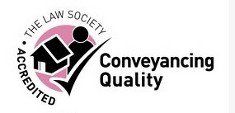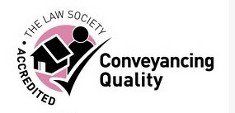Residential
Residential property solicitors in Northamptonshire
Evans Cook Solicitors provides a wide range of property conveyancing solutions for clients across Northamptonshire.
Rely on our property solicitors
Whether you're buying a new home or want to sell up and move on, Evans Cook Solicitors can help. We specialise in residential conveyancing and can help you with all your property law needs. We understand the stress involved in buying or selling a home, which is why we are committed to being friendly and approachable, as well as delivering the desired results.
Contact

What our residential property solicitors offer
- Residential conveyancing
- Residential freehold sales and purchases
- Residential leasehold sales and purchases
- Remortgaging and new builds
- Help to Buy purchases
- Shared ownership sales and purchases
- Wills and probate
services and more

Residential conveyancing
Our team has decades of experience in residential conveyancing. We have an in-depth knowledge of the local Northamptonshire property market and a good rapport with the companies and key individuals involved. In addition to the extensive knowledge about property law, we also know the practicalities involved in local area. Contact us to find out more.
Call Evans Cook Solicitors on 01933 278 259
for residential freehold sales in Northamptonshire.
Moving Home
Normally your move will have 5 legal stages:-
1. Pre-Contract
2. Exchange of Contracts
3. Post Exchange
4. Completion
5. Post Completion
Pre-Contract Stage – Sale/Purchase
The estate agent, once he has received an offer, will send to the seller's solicitor a memorandum of sale. This memorandum will provide details of the property for sale along with the contact details of the lawyers acting for the buyer. The seller's lawyer will send the pre-contract package they have prepared to the buyer's lawyer. This will comprise:
1. The draft contract of agreement between the buyer and seller, which states the property being sold and the conditions under which it is being sold.
2. Proof of the seller’s legal title to the property obtained from the Land Registry in the form of an official copy of the registry entry and a title plan of the land being sold.
3. Seller’s replies to the Seller’s Property Information Form and Fixtures, Fittings and Contents form.
4. Copy planning permissions, if applicable.
5. If leasehold, the lease, details regarding the arrangements for maintenance etc.
Once the buyer's solicitor has received this documentation the necessary searches will be carried out. Appropriate enquiries will be raised and the draft contract will be approved or amended.
Once all enquiries have been resolved, the buyer's solicitor will “report” to the buyer with the contract for signature and request the deposit. In this “report” will be details of the results of the searches and enquiries. In the case of leasehold transactions it will also contain the amounts payable for any maintenance contributions, payments to the landlord any observations with regard to the lease. In the vast majority of purchase transactions where there is a mortgage involved your lawyer will also be acting for your lender ensuring that the terms of the mortgage have been met.
At this point, either party is able to withdraw from sale or purchase, even if the contract has been signed by both the seller and buyer.
Exchange of Contracts Stage
As the name implies contracts are “exchanged” between both the buyer’s and seller’s lawyers. Once complete this forms a binding contract between the seller and buyer and neither can withdraw from the contract without forfeiting the deposit paid on exchange. The amount of the deposit will have been agreed between both the seller’s and buyer’s lawyers in consultation with their clients and is normally 10% of the property price. This deposit is retained by the buyer’s lawyers until the completion stage. The deposit serves as a good faith
statement that the buyer intends to proceed to purchase the property under the terms of the contract. In the unlikely event that the buyer withdraws from the purchase, the seller can retain the deposit money.
It is very likely that there will be more transactions than just your sale and purchase involved in this whole process and , what is called, chains are formed. Organising an exchange with completion dates convenient to all parties can very often prove problematic. However your lawyer will work on your behalf to try to take as much of the stress out of this process as is possible.
The buyer is not required in law to pay a deposit at any earlier stage than exchange of contracts. However, you may be asked by an estate agent or builder, particularly on new developments, to pay a deposit at an earlier stage for instance when an offer to buy has been made. If the seller withdraws, it is possible for the buyer’s lawyer to apply to the court for an order which would force the seller to complete together with bringing court proceedings for breach of contract.
Normally there is a period of 10-14 days between exchange and completion so that the purchaser’s lawyer has sufficient time to obtain the required funds from the buyer and/or mortgage lender and for the seller’s lawyer to obtain a redemption figure from the seller’s lender. This also allows for time to organise the various change of address notifications and other essential practicalities involved with the moving process. (A check list is provided below).
Post-Exchange Stage
The purchaser’s lawyer will raise ‘requisitions’ with the seller’s solicitor. These relate to the detail of the completion itself, e.g. how much money is required to complete the transaction, has anything changed with regard to the property information forms and the fixtures and fittings that have been agreed to be left, who holds the deeds and who holds the keys to the property? An undertaking (guarantee) is also given by the seller’s lawyer that the mortgage (if there is one) will be paid off so that the purchaser will receive the title free of charges to allow the new lender to register their charge ( if there is a new mortgage being taken out by the buyer).
When requisitions are sent, the transfer deed will be signed by the seller (the buyer having already signed the transfer prior to exchange) this will enable legal ownership to be transferred to the buyer.
The buyer’s lawyer will request the mortgage advance from the lender to be sent to them before completion.
The buyer’s and seller’s lawyer will prepare statements. This will detail and account to the client on where and how the proceeds from their sale (if there is one) and their mortgage advance (if there is one) has been used to buy and sell the properties involved together with a detailed account of items spent on the client’s behalf, such as searches. The final figure will inform the client on the amount (if any) required to complete the purchase and the surplus (if any) from the sale.
Some time before completion, the buyer’s lawyer will carry out pre-completion searches. This will ensure that nothing has changed with regard to the title of the property since initial searches were carried out at the beginning of the process.
Any outstanding mortgages on the property being sold must be “paid up” before the actual completion can take place. A request to the lender for an up to date statement is made by the lawyer so that the exact figure is known up to completion day so that the correct figure is paid to the lender.
Completion Stage
The buyer’s lawyer will use a special online banking system to transfer the amount required to complete the purchase (assuming that the money from the lender, if any, has been received). Once received by the seller’s lawyer they will notify the buyer’s lawyer and estate agent to authorise the release of the keys to the buyer. Both parties will then be advised that completion has taken place so that arrangements can be made for moving out and moving in.
In the majority of cases completion takes place early in the afternoon.
Post-Completion Stage
The seller’s lawyer obtains a receipt from the lender to confirm that the mortgage has been redeemed (paid off). This is forwarded to the buyer’s lawyer who in turn forwards this to the Land Registry together with proof that a Stamp Duty Land Tax (SDLT) return has been made. The amount of the tax is then paid to HMRC. (You will have been asked at the beginning of the transaction to appoint your lawyer to act as your tax agent).
This process registers your interest in the property (title) that you have purchased with Land Registry and normally only takes a few weeks to carry out.
Things to do before removal day.
Arrange contents and buildings insurance (we can provide a quote for this).
Contact the following and arrange for meters to be read and accounts transferred to new address where appropriate:-
Gas Electricity Water Telephone Services Sky/Cable TV
Book the removal van.
Cancel banker’s Order for Mortgage payments, after exchange of contracts
Notify local authority of move and ask for council tax to be apportioned to the date of moving.
Notify the following of the change of address:-
Insurance/Assurance companies National Savings/Premium Bonds
Banks Building Societies
Employer Schools
Doctor Dentist
Place of Worship Clubs and Societies
DVLA Electoral Roll
friends and relatives
Make arrangements for family/friends to look after children and pets on the moving day!
Contact Post Office for mail to be re-directed.
Send us a message
Thank you for contacting us.
We will get back to you as soon as possible
We will get back to you as soon as possible
Oops, there was an error sending your query.
Please try again later
© 2024. The content on this website is owned by us and our licensors. Do not copy any content (including images) without our consent.



